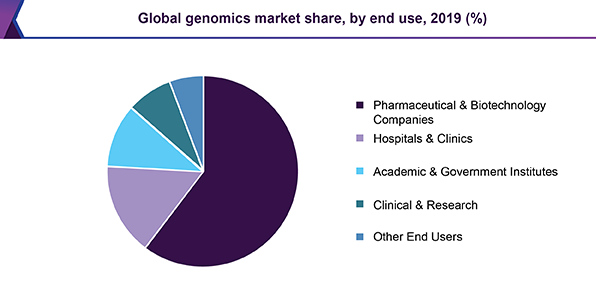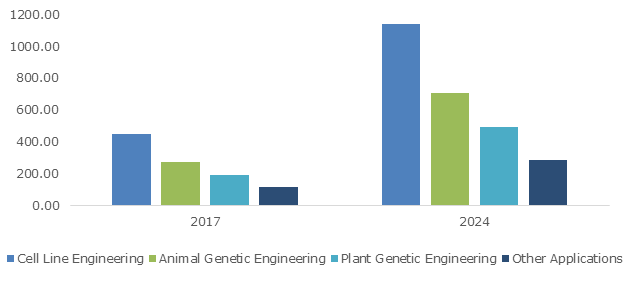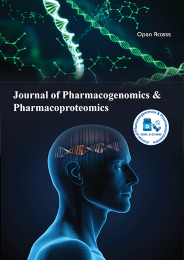Theme: New Strategies & Emerging Trends in Human Genome and Genomic Medicines
Human Genome 2020
Dear Potential Researchers, Scientists, Industrialists & Students,
Join us for 13th World Conference on Human Genomics and Genomic Medicine
Date: 28th September, 2020
If you are interested to be a part of this event as a speaker or delegate!
Email: connect@memeetings.com
Call: 1-201-380-5561 (Extension No- 7005)
WhatsApp: +44-7723584560
ME Conferences is hosting a webinar on " Human Genome and Genomics Medicine " during August 10-11, 2020; which brings you a series of fabulous researchers, scientists, industrialists etc., who will be sharing their experiences from various perspectives and addressing key questions.
Human Genomics and Genomic Medicine Conference 2020 encompass a variety of fields including: classical genetics, cytogenetic, molecular genetics, biochemical genetics, genomics, population genetics, developmental genetics, clinical genetics, and genetic counselling an emerging medical discipline that involves using genomic information about an distinct as part of their medical and the healthiness outcomes and policy suggestions of that clinical use." Already, genomic medicine is newest trend in the fields of oncology, pharmacology, rare and undiagnosed diseases, and infectious disease.
Why to attend to Human Genome Conference 2020?
With members from around the world focused on learning about Human Genomics & Genomic Medicine and its advances; this is could be your greatest opportunity to reach one of the largest assemblage of participants from the Genomics and its allied areas. Present research, share information, meet with current and potential scientists, make a mark with new drug developments, and receive name recognition at this 2-day event. World-renowned speakers, the most recent techniques, developments, and the newest updates in Genomics & Pharmaco Genomics, Human Genome and Mapping, Genetic Disorders and Diseases, Oncogenomics, Neurogenomics, Nutrigenomics, and Genomic Medicine are hallmarks of this conference.
Target Audience of Human Genome Conference 2020
- Molecular Biology Researchers
- Oncologist
- Bioinformaticians
- Gene Therapy Researchers, Scientists and Students
- Genetic Counsellors
- Pharmacology Health Professionals
- Pharmacology Scientists
- Immunologists
- Plant Genomics Students, Scientists
- Genetic Engineers
- Geneticists
- Members of Genetics Associations and Societies
- Genomics Colleges
- Genomics Faculty
- Genomics Researchers
- Gene Therapy Researchers, Scientists and Students
- Genomics Scientists
- Healthcare Professionals
- Bio pharmacist
- Biotechnologists
- Business Entrepreneurs
Benefits of joining webinar:
Track 1: Human Genomics and Proteomics
Identifying and characterizing all common sequence variants in the human genome has changed our understanding of segregating diversity, population genetics and vulnerability to disease. Single Nucleotide polymorphisms, (SNPs) historically thought to be th dominant source of sequence variation while certain sequence variants, such as microscopically recognized sequence duplication and deletion, is identified.
- Genome Sequencing
- Genome Engineering
- Proteogenomics
- Protein Interactions
- Next Generation Sequencing
Track 2: Advances in Human Genome
Over the past decade there are many advances in genomic technologies, enabling biologists to explore the genetics for research opportunities. One of the most exciting development in fields has been in genome sequencing assembly, where researchers can now produce assemblies of genomes for the species they select.
- Human Genome Project
- International Hap Map Project
- Genomic Sequences
- Comparative Genomics
Track 3: Genetic Disorders and Diseases
A genetic disorder is a condition caused by a deviation in the DNA sequence away from the regular sequence, in whole or in part. Genetic abnormalities may be initiated tpdue mutation in one gene or in more than one gene or due to environmental factors or due to chromosomal damages.
- Single – Gene Disorders
- Gene and Complex Disorders
- Chromosomal Disorders
Track 4: Human Genome and Mapping
Human Genome Project originally aimed at mapping nucleotides found in a human haploid reference genome. Each individual's genome is unique; gene mapping the human genome requires sequencing and then linking them together to produce a full sequence for each chromosome. The human genome is therefore a mosaic which is not represented by one person.
- Genomic Maps
- Chromosome Mapping
- DNA Sequencing
- Human Genome
Track 5: Pharmacogenomics in Drug Discovery
Pharmacogenomics is the study of genome's function in responding to drugs. It is mixture of the genomics and pharmacology. Pharmacogenomics analyzes how an individual's genetic makeup influences his / her response to drugs. It deals with the effect of genetic variation acquired and inherited on drug reaction in patients by attributing gene expression or single-nucleotide polymorphisms with pharmacokinetics (drug intake, delivery, metabolism, and elimination) and pharmacodynamic. For certain cases the term pharmacogenomicsis used interchangeably with pharmacogenetics.
- Pharmacometrics
- Target based Drug Discovery
- Reserve Pharmacology
- Pharmacokinetic aspects
Track 6: Oncogenomics- Genomic Approach to Cancer
Oncogenomics is a subfield of the genomics that characterizes the cancer related genes. Cancer is a genetic disease induced by accumulation of DNAmutations and epigenetic modifications that contribute to unrestrained cell proliferation and development of neoplasms. The aim of oncogenomics is to discover new genes for oncogenes or tumor suppressors that can provide new insights into cancer identification,predict outcomes of clinical cancer and new targets for cancer treatment.The success of targeted cancer therapies like Gleevec, Herceptin, and Avastin has increased hopes that oncogenomics will elucidate new targets for cancer care.
- Medical Oncology
- Surgical Oncology
- Cancer Therapy
- Comparative oncogenomics
Track 7: Neurogenomics- Approach to Gene Expression in Brain
Gene expression is one of the key molecular mechanisms that control the differentiation, growth and functioning of cells and tissues. Gene expression of the brain varies over the various phases of life. Early development sees the most important levels of expression, with the rate of gene expression being the highest
during fetal development. This is because of the fast growth of neurons in the embryo.
- Human Brain
- Gene Expression Profiling
- Imaging studies and optical mapping
- Genetic analysis of Brain disorders
Track 8: Microbial Genomics and Infectious Diseases
Differences in the sequence and structure of genomes from members ofa microbial community represent the mutation, recombination, and selection composite effects. With the growing availability of genome sequences, these effects have been better characterized and exploited in order to understand the nature and evolution of microbes and viruses and their often intimate relationships with humans.
- Pathogenesis and Symbiosis
- Genetic and Evolutionary Computing
- Genome Mapping and Genomics in Microbes
Track 9: Computational Genomics and Bioinformatics
Bioinformatics is sharing the origins of computational genomics withothers. Computational genomics analyzes vast databases of biological data, such as genetic sequences, populations of cells or to discover new biologies.
- Analytical methods
- Mathematical modeling
- Statistical Genetics
- Bioinformatics Techniques
Track 10: Nutrigenomics- Control for Chronic Diseases
Nutrigenomics studies the genome effect of nutrients, and the responseto diet from human genetic makeup. Active dietary molecules and human genetics are two major factors that control the development ofchronic diseases like cancer, cardiovascular disorders, diabetics, hypertension and obesity. Adequate nutrient intake protects us from developing chronic diseases. The nutrients should be kept in the optimal balance between the total oxidation status and the genome's total antioxidant response to maintain a degree of equilibrium between these two variables.
- Antioxidant
- Proteome
- Transcription factor
- Single Nucleotide Polymorphisms
Track 11: Molecular Genetics and Genomic Medicine
Molecular genetics is a genetic subfield that uses genetic screens to determine genetic structure and/or function
within an organism's genome using an investigative approach. The research area focuses on the integration of numerous biology subfields like cell biology, molecular biology,biochemistry, and biotechnology. Genomic Medicine and Healthcare course was planned for healthcare professionals including medical physicians,general practitioners, allied health professionals, nurses, genetic counselors and others with equivalent undergraduate degrees or comparable professional qualifications and background experience.
- Molecular Biology
- Genomic Medicine
- Molecular Diagnostic Methods
- Genomic Analysis
Track 12: Biomarkers and Genomic Medicine
Biomarkers are the observable predictor showing the particularperson's existence, or quantity or extent of the disorder. Existing genomics and biotechnology applications provide assurance of biomarker production to guess the livelihood of disease in an individual ,enable initial disease identification and improve diagnostic classification for better individualized improvement.
- MicroRNAs
- Biomarker Discovery
- Biomarkers into Clinical Medicine
- Genomic Variations
Track 13: Implications of Genomics on Public Health
Public health practice aims to recognize the causes of the disease,anticipate and avoid it where possible, and or else detect it early and efficiently treat it so as to mitigate morbidity, disability and death.The making of effective epidemiological methods is to look at disease over the past years and its contribution to the risk factors and providing basic strategies for disease prevention and health promotion.
- Personalized Prevention
- Health Screening
- Public Health Practice
- Health Protection
The National Human Genome Research Institute defines human genomic medicine as an emerging medical discipline that involves using genomic information about an individual as part of their clinical care. Genomic medicine is a type of a precision medicine in which genomics, epigenomics and other related data is used to accurately aid in individual disease diagnosis. Genomic medicine increasingly being used not only for research purpose but also in clinical applications. Genomic Medicine gaining momentum with expanding applications ranging from risk assessment and diagnosis in healthy individuals to genome-based treatment for patients with complicated disorders.
Genomic Medicine Market: Segmentation
Based on application, the global genomic medicine market is segmented into the following:
- Oncology
- Cardiology
- Pediatrics
- Endocrinology
- Rare Genetic Disorders
- Respiratory Medicine
- Infectious Diseases
- Other applications
Based on end use, the global genomic medicine market is segmented into the following:
- Hospitals
- Clinics
- Academic Institutions

The Growth of Human Genome Market over the years:
The worldwide genomics showcase size was evaluated at USD 15.48 billion out of 2018 and is foreseen to extend at a CAGR of 8.6% over the conjecture time frame. The development of genomic information pool due research exercises has empowered doctors, scholars, and patients to additionally examine the hereditary inclination to specific infections. Clinical use of this information pool is required to assume a significant job in changing the human services framework regarding the arrangement of increasingly exact, compelling, and dependable illness the board arrangements.
In spite of the fact that the clinical use of genomic information is at a beginning stage in present, the social insurance and research network are making endeavours for compelling reconciliation of hereditary data into clinical work processes. A few clinical focuses, for example, Stanford Health Care and other malignant growth investigate focuses, have started utilizing the accessible genomic data to devise customized treatment system. This, thusly, helps in crossing over any barrier between translational research and clinical determination and treatment. The worldwide hereditary testing market since 2015 and the market is ready to develop by USD 4.86 billion during 2020-2024 at a CAGR of over 12% during the conjecture time frame.

Market study of Human Genetics:
The Genetic Market is increasing day by day .Each Continents are having their share in the growing market of human genomics. The most contributed continent in this regard is Middle East which contributes about 31% and the second contributed country is Asia Pacific which contributes about 30%. Them it is followed by USA which con tributes only 22%in the market .The least contribution is made by Europe which is 17%only.
The Future of Human Genome:
The worldwide market of human hereditary qualities holds the monstrous potential to flood. Qualities are the keys that open the complexities of how the body capacities, which can help in the advancement of better diagnostics and viable treatment for the lethal issue, for example, malignant growth and AIDs or clutters, for example, Alzheimer and Parkinson that have constrained treatment choices. The ascent deprived to meet the medicinal prerequisites of patients is required to provoke development for the overall human hereditary market. The development of the patient pool is probably going to reinforce the market. It is seen that the human hereditary market is probably going to blast in the coming years.
The ascent in awareness of quality treatment and increment in the commonness of quality treatment is noted to heighten the human hereditary qualities showcase development. Innovative work focuses and criminological labs are very good quality clients of the human hereditary qualities methods. Governments, over the globe, making robust speculations, and increment in wrongdoing cases are causes that are probably going to make the market pattern upwards. The ascent deprived for progressively compelling and non-intrusive treatment and urgent need to rapidly explain criminal cases are can enlarge the market development. Nonetheless, the absence of prepared experts can block the human hereditary qualities showcase development
List of Hospitals, Research Centers and Labs
- All-Ukranian Genetics Association Experts of Medical and Laboratory Genetics
- Armenian Society of Human Genetics
- Austrian Society of Human Genetics
- Belgian Society of Human Genetics (BeSHG)
- British Society of Genetic Medicine
- Bulgarian Society of Human Genetics
- Clinical Genetics Society of Croatia
- Croatian Society of Human Genetics
- Cyprus Society of Human Genetics
- Czech Society of Medical Genetics
- Danish Society of Medical Genetics
- Dutch Society of Human Genetics
- Dutch Society for Laboratory Specialist Clinical Genetics\
- Dutch Society of Clinical Genetics
- Estonian Society of Human Genetics
- Finnish Society of Medical Genetics
- French Association of Genetic Counsellors (AFCG)
- French Federation of Human Genetics
- French Society of Human Genetics
- Genetic Association in Bosnia and Herzegovina (Udruženje geneticara u BiH – GENUBIH)
- Genetic Counselors of Belgium – GCBe
- Genetics Society of Israel
- Georgian Society of Medical Genetics and Epigenetics
- German Society of Human Genetics
- Hellenic Association of Medical Geneticists
- Hungarian Society of Human Genetics\
- Icelandic Human Genetics Society
- Irish Society of Human Genetics
- Israeli Society of Medical Genetics
- Italian Society of Human Genetics
- Latvian Association of Human Genetics
- Latvian Society of Medical Genetics
- Lithuanian Association of Genetics
- Lithuanian Society of Human Genetics
- Macedonian Society of Human Genetics
- Malta College of Pathologists, Human Genetics Group
- Medical Genetics Society of Israel
- National Board of Clinical Geneticists of Georgia
- Norwegian Society of Human Genetics (NSHG)
- Norwegian Society of Medical Genetics
- Polish Society of Human Genetics
- Portuguese Society of Human Genetics
- Romanian Society of Human Genetics
- Russian Society of Medical Genetics
- Serbian Genetic Society, Section for Medical Genetics
- Slovak Society of Medical Genetics
- Slovenian Association of Medical Genetics
- Slovenian Society of Human Genetics
- Spanish Association of Human Genetics
- Swiss Association of Genetic Counsellors
- Swiss Society of Medical Genetics
- The Swedish Society of Medical Genetics and Genomics (SFMG)
- Turkish Society of Medical Genetics
Guidelines for presenters:
India will Launch its 1st Human Genome Mapping Project
India will launch its first human genome mapping project by October, a move that will help researchers get closer to developing effective therapies for treating diseases such as cancer. In the first phase of the initiative called the Genome India project, the genomic data of 10,000 Indians will be catalogued. The Department of Biotechnology (DBT) has initiated the project.
Conference Highlights
- Human Genomics and Proteomics
- Advances in Human Genome
- Genetic Disorders and Diseases
- Human Genome and Mapping
- Pharmacogenomics in Drug Discovery
- Oncogenomics- Genomic Approach to Cancer
- Neurogenomics- Approach to Gene Expression in Brain
- Microbial Genomics and Infectious Diseases
- Computational Genomics and Bioinformatics
- Nutrigenomics- Control for Chronic Diseases
- Molecular Genetics and Genomic Medicine
- Biomarkers and Genomic Medicine
- Implications of Genomics on Public Health
To share your views and research, please click here to register for the Conference.
To Collaborate Scientific Professionals around the World
| Conference Date | August 10-11, 2020 | ||
| Sponsors & Exhibitors |
|
||
| Speaker Opportunity Closed | |||
| Poster Opportunity Closed | Click Here to View | ||
Useful Links
Special Issues
All accepted abstracts will be published in respective Our International Journals.
- Journal of Molecular and Genetic Medicine
- Journal of Pharmacogenomics & Pharmacoproteomics
- Journal of Human Genetics & Embryology
Abstracts will be provided with Digital Object Identifier by





